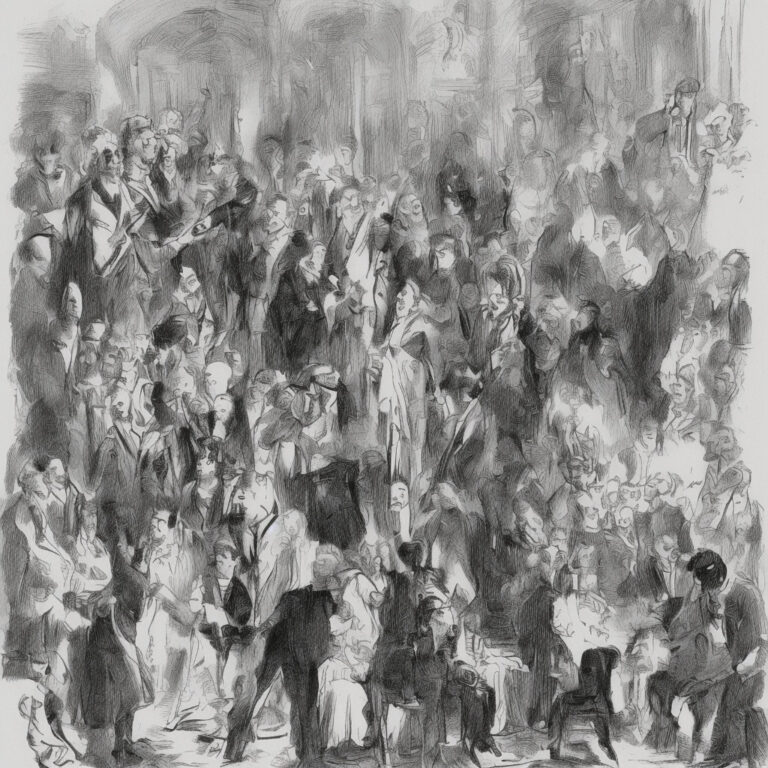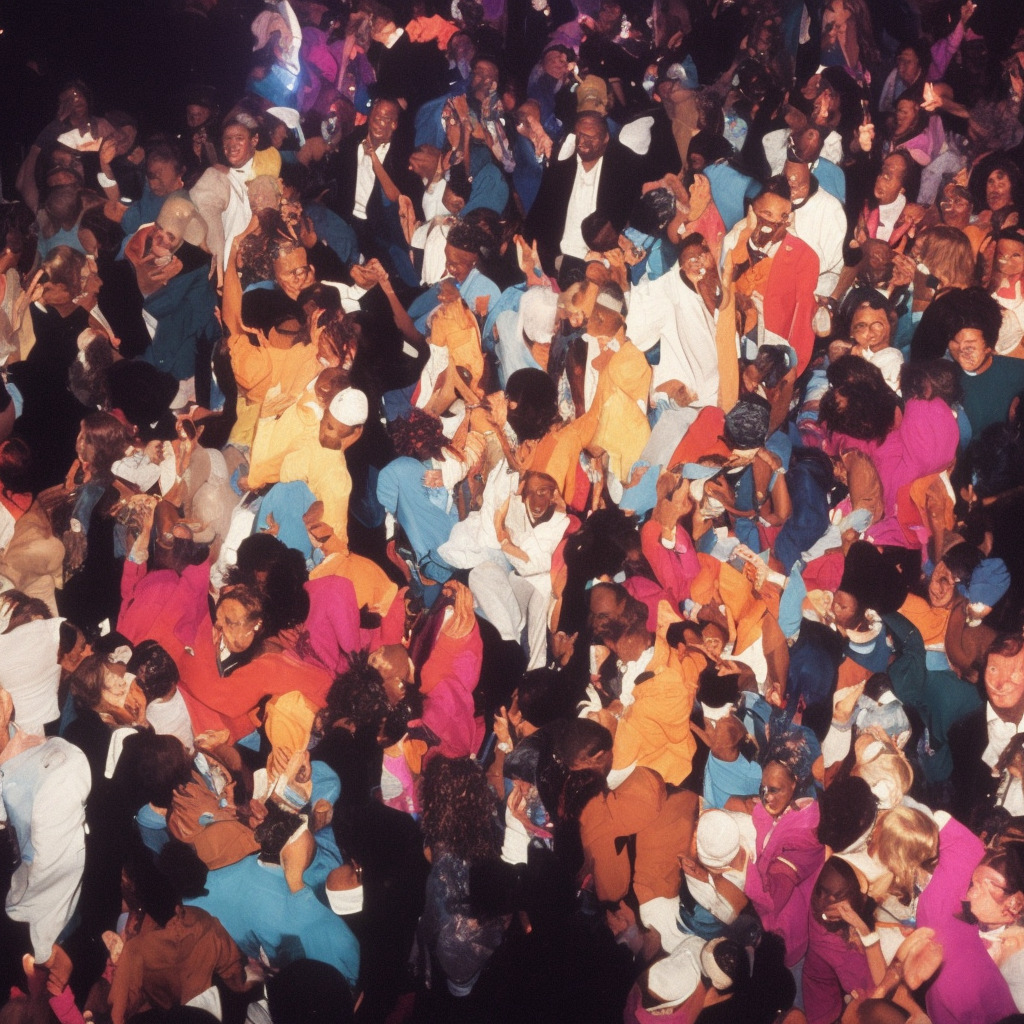🎶Did you know? “Return to Innocence” by Enigma samples a Taiwanese folk song!🌏 Dive into a world of ethereal soundscapes & rediscover your inner peace✨ #Enigma #90sChill #WorldMusicFusion #ReturnToInnocence Read about it: tinyurl.com/4cx8zemn
Unraveling the Mystique of Enigma’s Timeless Classic
Embark on a journey of self-discovery with Enigma’s “Return to Innocence,” a timeless classic blending haunting melodies, cultural fusion, and introspective lyrics.

Enigma, the musical project masterminded by the brilliant Michael Cretu, was never one to shy away from delving deep into the human psyche and exploring the myriad complexities that define our existence. Over the years, the band has mesmerized listeners with their hauntingly beautiful fusion of ambient, new age, electronic, and world music. One song that stands as a testament to their immense talent and creative vision is “Return to Innocence.”
Released in 1993 as part of their second studio album, “The Cross of Changes,” “Return to Innocence” quickly became one of Enigma’s most iconic songs. The song is a poignant reflection on the loss of innocence, the longing for simpler times, and the quest for self-discovery. The combination of ethereal synths, Gregorian chants, and the Taiwanese Amis tribe’s mesmerizing vocals create a sonic landscape that invites the listener to embark on a journey of introspection and self-exploration.
While Michael Cretu is the creative force behind Enigma, the project has featured several collaborators over the years, including his ex-wife Sandra Cretu, who lent her enchanting voice to many of their hits. Other notable contributors include multi-instrumentalist and programmer Peter Cornelius, vocalist Ruth-Ann Boyle, and guitarist Jens Gad.
Enigma’s groundbreaking efforts have not gone unnoticed, as they have garnered numerous awards and accolades for their innovative work. Their debut album, “MCMXC a.D.,” achieved multi-platinum status and was nominated for a Grammy in the Best New Age Album category. “Return to Innocence” itself was a commercial success, peaking at #4 on the Billboard Hot 100 chart and earning Gold certification in the United States.
Though Enigma’s music has often been met with critical acclaim, it is not without its detractors. Some critics argue that their heavy use of samples and fusion of diverse cultural elements can border on appropriation or dilution of the original sources. While this critique is not unfounded, it is important to remember that Enigma’s intention has always been to create a harmonious blend of music and cultures, opening up the listener to a world of new experiences and sounds.
Ultimately, Enigma’s “Return to Innocence” continues to resonate with audiences around the globe, transcending cultural and temporal barriers with its timeless message of self-discovery and personal growth.
Charting the Journey of a Timeless Hit
“Enigma’s ‘Return to Innocence’ captivates the world with its unique blend of new-age sounds and powerful lyrics, soaring through global charts and cementing its timeless legacy in music history.”

Enigma’s iconic song “Return to Innocence” was released on January 4, 1994, as the lead single from their second album, “The Cross of Changes.” The song quickly gained popularity and received critical acclaim for its unique blend of new-age sounds, world music influences, and engaging lyrics.
In terms of chart success, “Return to Innocence” initially entered the UK Singles Chart at position number 88. However, it didn’t take long for the song to climb up the rankings, eventually peaking at an impressive number 3 in February 1994. The song spent a total of 13 weeks in the UK Top 40, showcasing its popularity and the band’s ability to capture the attention of listeners.
Across the pond, the song also fared well on the US Billboard Hot 100 chart. “Return to Innocence” debuted at number 70 and gradually rose to its peak position of number 4 in April 1994. The song’s success on the charts led to it being certified Gold by the Recording Industry Association of America (RIAA) for sales exceeding 500,000 copies.
In addition to its chart performance in the UK and the US, “Return to Innocence” also made an impact in various countries around the world. The song reached the top 10 in several European countries, including Austria, Belgium, Germany, Ireland, the Netherlands, Norway, Sweden, and Switzerland. It also reached number 1 in Canada’s RPM Top Singles chart and held the top spot for two consecutive weeks in May 1994.
Interestingly, “Return to Innocence” has a unique achievement under its belt in the world of chart trivia. In 1994, the song reached number 1 on the Eurochart Hot 100, making Enigma the only German-based act to have topped the chart at the time.
Overall, the song’s chart success and worldwide recognition speak volumes about Enigma’s creative prowess and the timeless appeal of “Return to Innocence.” The song remains a classic and continues to enchant listeners with its evocative soundscapes and thought-provoking message.
A Dive into the Lyrics of an Enigmatic Classic
Love – Devotion
Feeling – Emotion
Don’t be afraid to be weak
Don’t be too proud to be strong
Just look into your heart, my friend
That will be the return to yourself
The return to innocence
If you want, then start to laugh
If you must, then start to cry
Be yourself, don’t hide
Just believe in destiny
Don’t care what people say
Just follow your own way
Don’t give up and use the chance
To return to innocence
That’s not the beginning
But it’s the return – the return to innocence
Enigma’s “Return to Innocence” is a song with lyrics that speak to the soul, transcending time and place. Released in 1994 as part of their second album, “The Cross of Changes,” this song captures the spirit of a time when people were looking for deeper meaning and introspection amid the chaos and uncertainties of the ’90s.
The lyrics focus on self-discovery and embracing one’s true self, urging listeners not to be afraid of vulnerability or strength. The lines, “Don’t be afraid to be weak / Don’t be too proud to be strong,” suggest that finding balance and accepting ourselves for who we are is the key to returning to innocence.
Moreover, “Return to Innocence” encourages us to trust our own path: “Don’t care what people say / Just follow your own way.” This message resonates with the events of the era, when the world was experiencing rapid changes in technology, politics, and society. It is during these times when we often need a reminder to stay grounded and true to ourselves, despite external pressures and expectations.
In essence, Enigma’s “Return to Innocence” is both an anthem for individuality and a call to reconnect with our inner selves. The song’s lyrics remain relevant today, offering a timeless message of self-love, acceptance, and inner peace.
Visualizing the Journey Back to Innocence
Journey through time with Enigma’s “Return to Innocence” music video, an iconic visual masterpiece of self-discovery and cultural immersion that continues to captivate fans worldwide.
The music video for Enigma’s 1994 hit single “Return to Innocence” is just as emotionally evocative as the song itself. Directed by acclaimed filmmaker Julien Temple, it masterfully captures the essence of the track’s message – a journey of self-discovery and a rediscovery of one’s roots. The concept of the music video was to tell a life story in reverse, starting with an elderly man reflecting on his life and moving back in time to his childhood innocence.
Temple, who has an impressive list of music videos under his belt, including works for artists like David Bowie, The Rolling Stones, and Janet Jackson, brought a unique cinematic flair to the project. The music video, rich in symbolism and striking imagery, takes viewers on a powerful journey through time, as scenes depict the protagonist’s life in reverse – from old age to the moment of birth.
Shot in Taiwan, the video features breathtaking views of the island’s natural landscapes and incorporates several Asian cultural elements. The production team painstakingly recreated different eras in the protagonist’s life, showcasing intricate details in terms of clothing, props, and locations. One of the most memorable moments in the video is the protagonist’s participation in a traditional Taiwanese wedding ceremony, which adds an authentic touch to the visual narrative.
The music video truly amplifies the spiritual and introspective qualities of “Return to Innocence.” Despite having a relatively modest budget, the video’s impact was undeniable, earning it widespread acclaim and multiple award nominations. It was even nominated for an MTV Video Music Award in the Best Art Direction category.
In the years since its release, the “Return to Innocence” music video has continued to inspire fans around the world. A testament to its enduring appeal, various fan-made videos, tributes, and even dance interpretations can be found on YouTube, celebrating the song’s message and the visual journey it takes us on.
With its thought-provoking concept, visually stunning cinematography, and the timeless message of self-discovery, the music video for Enigma’s “Return to Innocence” remains an iconic piece of music history that continues to resonate with audiences today.
The Mastermind Behind Return to Innocence: Michael Cretu
Delving into the genius composer behind Enigma’s “Return to Innocence,” we find the immensely talented Michael Cretu. Born in Romania, Cretu began his musical journey by studying classical music and later attending the prestigious Hochschule für Musik und Theater München in Germany. His expertise in blending electronic sounds with ethereal and world music elements has set him apart in the ever-evolving music industry.
Apart from creating the hypnotic beauty of “Return to Innocence,” Cretu also composed other notable tracks such as “Sadeness (Part I),” which became a massive global hit, and the enchanting “Gravity of Love.” His exceptional production skills even led him to work with revered artists like Mike Oldfield, Sandra, and Peter Cornelius. Clearly, Michael Cretu’s ability to evoke deep emotions through his compositions has solidified his position as a true musical visionary.
A Blast from the Past: Accolades, Appearances, and Covers
Relive Enigma’s ’94 chart-topping classic, “Return to Innocence,” as we explore its accolades, iconic soundtrack appearances, and transcendent covers that continue to captivate generations.

“Return to Innocence” quickly etched itself into the music charts upon its release in 1994, peaking at number 4 on the US Billboard Hot 100 and claiming the number 2 spot on the UK Singles Chart. Enigma’s chart-topping single received widespread acclaim and was nominated for an MTV Europe Music Award for Best Song in the same year.
The song’s instantly recognizable chant and soothing sounds made it a popular choice for numerous film, television, and video game soundtracks. The most notable of these appearances was in the 1996 sports biographical film “Prefontaine” based on the life of American track star Steve Prefontaine. “Return to Innocence” was also featured in an episode of the American TV series “Miami Vice” and in advertisements for the 1996 Olympic Games held in Atlanta, Georgia.
Over the years, “Return to Innocence” has inspired a number of artists to create their own renditions of the track. Perhaps the most notable cover was by the Brazilian singer and Xuxa, who recorded her version for the 1996 album “Tô de Bem com a Vida.” German dance group Mythos ‘n DJ Cosmo also paid homage to the classic hit with their trance-inspired remix in 2001. In addition, the song has been covered by various musicians from different genres including acoustic, electronic, and world music.
Although many years have passed since its release, the timeless nature of “Return to Innocence” continues to resonate with audiences worldwide. Its legacy as a beloved track in Enigma’s discography is cemented by the accolades it received, its appearances in various media, and the countless renditions inspired by its ethereal and enchanting sound.
Delving into the Musical Layers
The musical structure of “Return to Innocence” is a beautiful amalgamation of electronica, ambient, and world music styles, which adds to the otherworldly allure of the track. The song is written in the key of D♭ major, which contributes to its ethereal and uplifting atmosphere as the listener is taken on a journey through various soundscapes.
The chord structure of this Enigma masterpiece is relatively simple, yet effective in evoking a sense of nostalgia and yearning for a return to a purer state of being. The progression follows a pattern of I – IV – V, which is a common and timeless chord progression found in countless popular songs. By utilizing this familiar structure, Enigma is able to create a sense of comfort and familiarity for the listener while still maintaining their signature, innovative sound.
The tempo of “Return to Innocence” is set at a moderate pace, with 96 beats per minute. This allows for the listener to truly immerse themselves in the intricate layers of the song, without feeling rushed or overwhelmed. The rhythm is driven by a steady drum beat, with additional percussion elements such as shakers and tambourines, creating a rich and dynamic texture that complements the track’s melodic components.
An essential aspect of the song’s structure is the use of vocal samples, specifically the Amis, a Taiwanese indigenous group, which adds an ethnic and spiritual dimension to the piece. The juxtaposition of these traditional chants with modern electronic elements creates a unique fusion that is both grounding and transcendent. Additionally, the layering of the Amis vocals with a powerful, haunting performance by Angel X (Andreas Harde) further enhances the emotive quality of the track.
A key feature of Enigma’s sound is their expert use of synthesizers and various electronic instruments. In “Return to Innocence,” these elements are carefully woven together to create a lush and immersive sonic environment. The intertwining of synthetic and organic sounds results in a rich tapestry that envelops the listener and transports them to a place of introspection and spiritual awakening.
It is this intricate and thoughtful combination of musical elements that makes “Return to Innocence” a standout track in Enigma’s discography, and a testament to their innovative approach to creating deeply evocative and memorable music.







